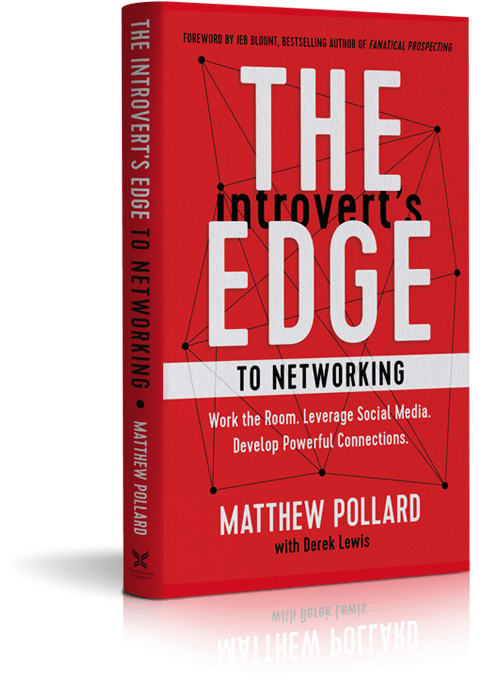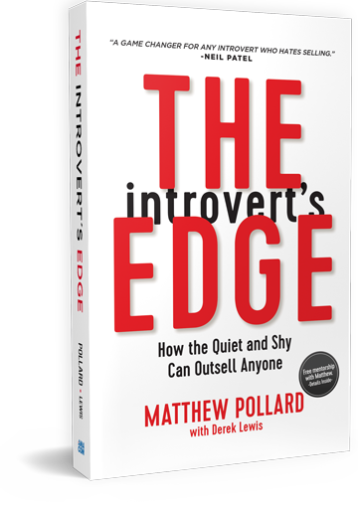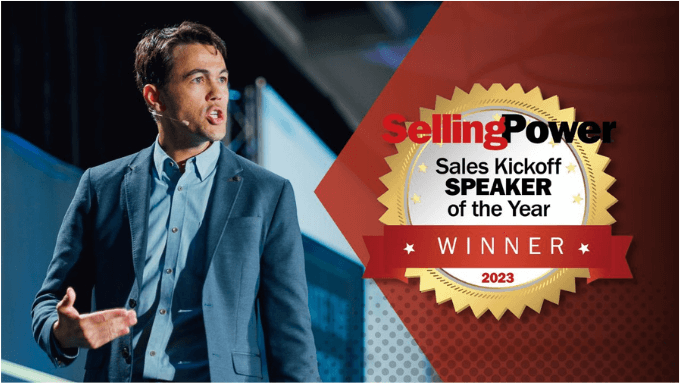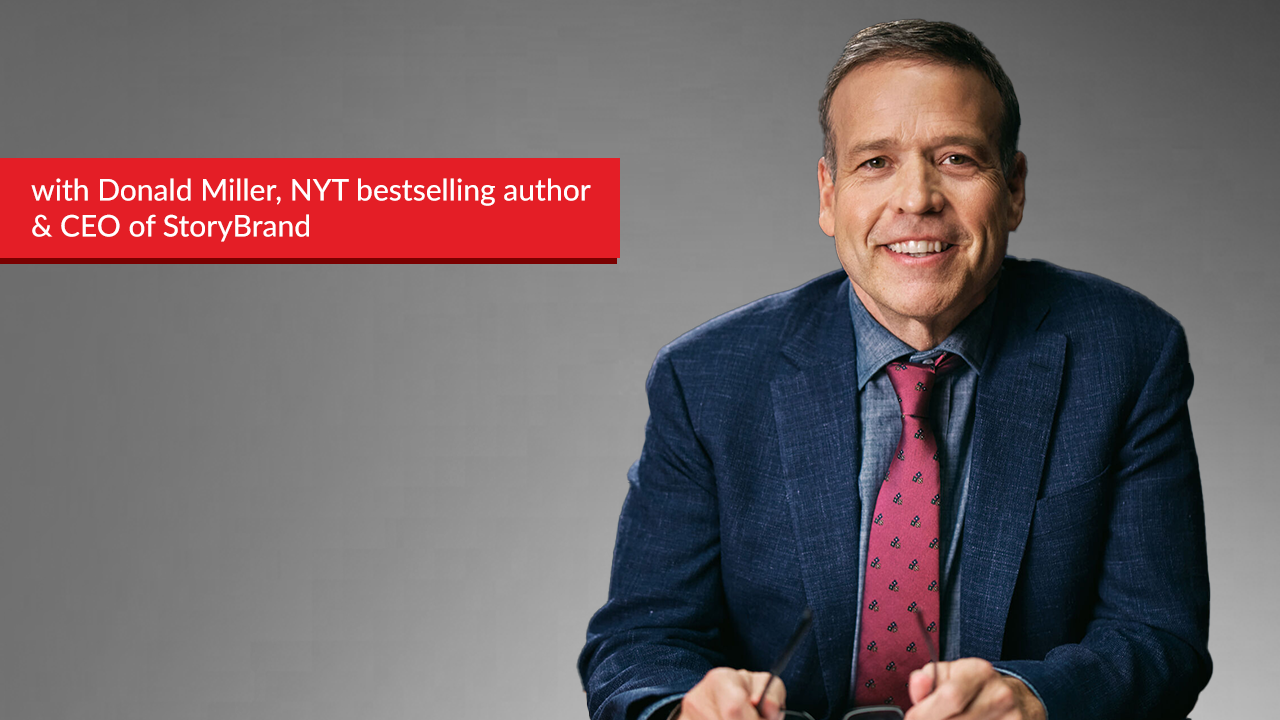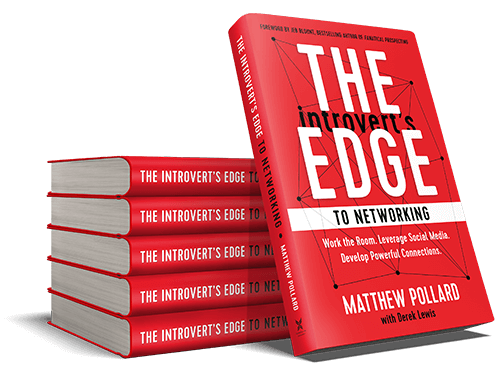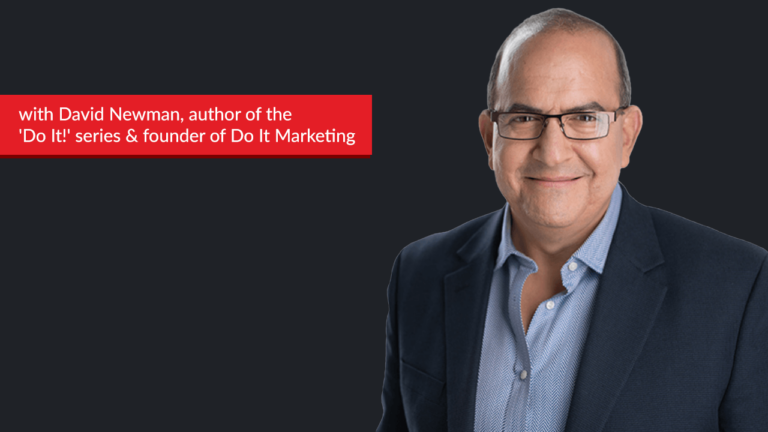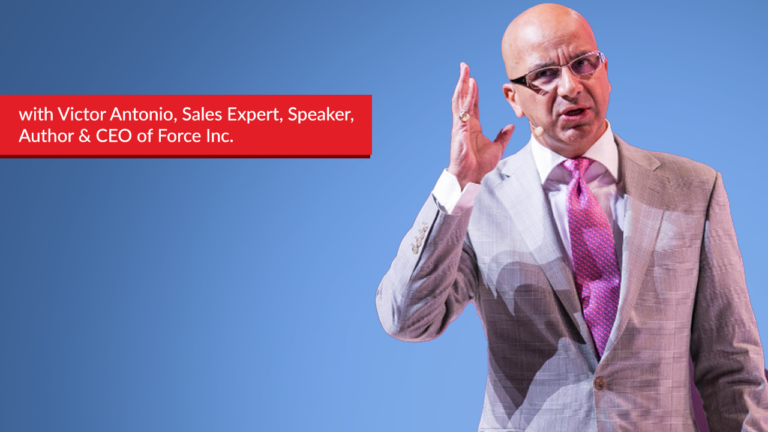Matthew Pollard: Hello, everyone, and welcome to the Introverts Edge podcast. And I have to admit, I’m ecstatic to welcome our next guest. Donald Miller is not only a multiple New York Times bestselling author, he is also the author of Story branded, as you know, I believe that most businesses is a really one great story away from the rapid growth business they deserve, which is why I can’t wait to get into the meat of this, because you’re going to hear from the man himself that it’s not about you, which I know we introverts do not like it to be.
So I’m ecstatic to introduce you to Donald Miller. Welcome to the show, mate.
Donald Miller: Wow, the long overdue to get to know each other. I’m grateful to be here.
Matthew Pollard: Absolutely. And I have to say, I was I was telling everybody, you know, before we went before we went on air that the moment I walked into my publicist publisher’s office, they handed me your book on a silver platter. And like, you’ve got to check out this book. And I at that point I hadn’t heard of you. And at that point I couldn’t.
After I started to research, I couldn’t imagine how I couldn’t have heard of you until then. And I feel like our circles have been trying to cross for many, many, many years. So I’m glad we finally have. And I I’m really excited to talk about your introverted story. And I think that this is really important because when I see a lot of these highly influential people, it’s very hard for the people listening or watching to go, okay, that person is really articulate.
Speaking from stage. Sure. Yeah. Yeah, right. He’s an introvert, so I know the back story a lot more than most people listening. So why don’t you just share with us a little bit around kind of the humble upbringings of you or kind of how you’ve kind of felt your interview and how that affected you?
Donald Miller: Well, I you know, I grew up in Texas and my dad split when I was about two years old. And mom was just really busy trying to make ends meet, you know, to be honest, and so spend a lot of time. I did have an older sister, but she was a couple of years older and had kind of her own life going on.
So I just spent a lot of time alone. I mean, a lot of time, you know, in the backyard playing with trucks and running around in the woods and the down by the railroad tracks and all that kind of stuff. And a lot of time, you know, making up stories in my head. And none of that felt especially lonely to me, I should say.
So perhaps I was born an introvert, but now, looking back, you know, the ability to write a book and to write it yourself, not to have ghostwriters or editors and all because I have friends who are extreme extroverts who say they’re writers and they’ve never written a book and they’re never going to, but they they think they have.
But it’s a you know, it’s it takes sometimes weeks, if not months, to go deep, deep, deep, deep, deep and not come up for air. And I think it requires an introvert mind to be able to do that and at least do it and enjoy it. So I’m grateful for the way that I grew up and the sort of life situation that I was handed because it served me in many, many ways.
And, you know, it’s been interesting. I became a father late in life. I’m 52 and I have a two year old. She is wonderful. And my my wife says, oh, we got to have a she’s got to have a sibling. You know, we need another. And of course, I want another, too, but I’m secretly thinking, Well, well, then she’ll never be a writer, you know?
And there’s nothing wrong at all with just playing in your own imagination and that sort of thing. So probably a point of contention in some families, but it served me super, super well. And and I love the the idea that the introvert has an edge, doesn’t have all the edges, but has an edge. And I wholeheartedly agree with that.
Matthew Pollard: Look, I think that’s a really important point to make, actually, because I think a lot of what you say in your books is it’s not about what makes you the same, that makes you great. It’s about what makes you unique and what makes you different. And I feel I feel like it’s the products that always end up succeeding because the people that have always had it come easy or never really had a tough time.
They don’t really learn those skills, or maybe they’re just not living in their emotions, their imagination and their emotions enough. And I’ve really noticed with with your books, you tend to really go deep in reflection as well. And I think not only do you reflect a lot in what you write, but you also help other people really reflect and go deeper into their own challenges or their own uniqueness.
Yeah, in your own mind, like for the people that don’t naturally do that, and I know that a lot of introverts are very deep in their emotions, in their feelings, but sometimes they struggle to articulate. It is clearly, as perhaps you do. What advice would you give people that wish they could be more expressive in their in their verbal or their their within the written language?
Donald Miller: I think two things. One is try to find a way to do it, whether it’s written word or through a piece of art, a painting, even through, you know, we have my my wife has a ten year old sister, believe it or not, that her parents adopted very, very late in life. And so she has a ten year old sister who lives with us and last night we give her between three and $25 per poem that she memorizes and so we were swimming in the pool last night working on a $3 poem, an Emily Dickinson poem about I’ll tell you how the sun rose a ribbon.
At the time I even memorized it. But you could see that as she memorized that poem. By the way, she got it down by the time we were done swimming. And she went to my wife and recited it to her, the rule is you got to recite it. Then two days later you got to recite it again. So you can’t just memorize it for a minute.
You got to have it. And you could see her being so incredibly proud of that. And also that to some degree she was expressing a piece of art that wasn’t hers. But I really and it worked. I mean, you know, she owned it. And so that’s the beauty of a poem or a piece of art or song. It becomes part of our identity.
But I think figuring out a little bit about who you are, not we’re never going to figure it all out, but being able to express that and have somebody else understand it, I believe, is fundamental for the health of every human being. And so that’s the first thing, is find a way to express who you are, even if it’s just, I love this music and here’s why.
Then the second thing is you actually have to find somebody who cares and that’s a journey that we’re all on finding our tribe, our group of people, our friend, our soulmate. But I think, you know, I’ve noticed that in the ten years that I’ve been married again, I got married late, but in the ten years that I’ve been married, I would say I’ve become I wasn’t necessarily an unhealthy person Before I got married.
I’d done a lot of therapy and done a lot of my own work. But my health is has greatly increased, especially my mental health. And I think I think a big chunk of that is just having somebody to talk to and somebody to turn around and say, Oh, that makes sense, or I see why you would be afraid of that.
Or I you know, I’m proud of you, too. You know, just those things I’ve come to believe that the number one way I can serve my wife and support her is actually just to listen, literally just active listening. And so I think that’s even for us introverts, even though we can go I used to go off on an on to an an island on an island in the San Juan’s for weeks and weeks at a time to right.
And was completely happy doing it, but probably not mentally the most healthy that I could be.
Matthew Pollard: Well, I look, I’ve been I remember finishing my last book and it was 60 days of just nothing else but finishing finishing the book. And you’re right, if you’re if you’re an extrovert that misses people or misses or gets their energy, you’re just not going to do that. That lasts that last leg. I, I think, though, I mean, you’ve I mean, you’ve written on so many topics, everything from intimacy and relationship to business and to fiction.
And I think that because you’ve produced so many books and you’ve had such great success, I think you can answer this other part of the question. Like a lot of people, a lot of authors. I mean, let’s face it, a lot of functional service providers that have a great service that they’re proud of. They kind of feel like once that their work should speak for itself or that people should come and just buy from.
And I mean, book publishing is the the worst at that, right? I finished the book. I go these days on Amazon, it’s so easy. You press go and it just you know, it lets you lose the 12 months to publishing and seeing it go out the right way. But if I can press go and then I spend no work trying to get people to buy it, promote the book.
Your person that prides themselves on their quiet time, their self-reflection, and yet you have done the book promotion thing and you talk on stage and you do those things. Do you feel that those in your mind, are they compromises to do what you do because you love what you do and you have to do those things? Perhaps you don’t or do you now love those things?
Did you it Was that a transition? Help me understand that.
Donald Miller: Well, I think for me, just as a writer, I’m the way I’m wired is I’m really, really interested in a subject and I want to understand the subject fully. And then once I understand it, I want to turn around and teach it that that’s what gives me life. So whether I’m teaching it in a book or in a classroom or on a stage doesn’t matter a whole lot to me.
To me that that is not draining, that does not take energy from me to do any of any of those things. One on one conversation that is not about a subject that is about chit chat. You might as well hook me up to an I.V. and start taking my blood. I mean, I’ve got you know, I’ve got seconds left to talk about the weather before I’m going to faint.
I guess I’m running out of energy. But, you know, you come up to me and you say, hey, you know, you know, what do you think of British politics compared to American politics? And 2 hours later, I’m more energized than I was when we started. And, you know, 2 hours in, I finally say, by the way, what was your name?
I think a lot of people can probably identify with exactly what I’m saying. So I just try to live and, you know, I think God gives us just different gifts and different abilities. And I try to own my gifts as a duty and a responsibility. So I have a response. It’s ability to understand ideas, simplify them and turn around and teach those ideas to people so that their lives are made better.
I do not have as much of a responsibility to connect with 50 or 60 people on a deep level because I just wasn’t given that gift. Now, it doesn’t mean I can be rude or a jerk. That’s not what I’m saying. But I want to fully live in to what I’m good at and understand that other people are are exceptional at what they’re good at.
My wife is exceptional about that building long term, deep, very nurturing relationships, and I benefit from that every day. And but that’s not what I’m exceptional at. What I’m exceptional as being curious and spending months and maybe even years trying to understand something and then turn around and explain it or present a better way of doing it. So I try not to feel guilty about not having some of the extroverted tendencies and instead play to my superpowers.
Matthew Pollard: Yeah, I think that’s that’s really important. I think so many people spend their life trying to become more extroverted. Yet that’s I mean, for me, I mean, I’m successful in sales and networking, but my path to success wasn’t trying to copy the extroverts. I would be terrible at the way they do it. The way I do it works for me.
And I’m I’m very focused in helping people find a way that works for them. That said, when I think about the way people communicate, I think you defined it well. You said, you know, I understand things and then I explain them in a simple way. And I remember I hear my father every now and then. And, you know, I talk about my father with small talk.
He was like, can people just get past that? And let’s just get to the meat of the conversation. It’s always what he wanted to do. And I feel like a lot of people, when they’re selling their services or when they’re advising their clients, they kind of stuck in this place where they want to get into the meat of the conversation.
But the prospect perhaps doesn’t want that. They they want it explained simply, and perhaps they want it explained with the story as opposed to the jargon, the firehose of information that people generally will give you. Now, you’ve delivered so many presentations, you’ve coached so many people and you’ve sold a ton and have to sell it to get to that point.
What do you define the importance of helping the customer understand something simply to the people that are used to educating their client with perhaps too much information that they perhaps didn’t ask for?
Donald Miller: Well, I think there’s a there’s a place for that. And the place to give all of that information to your client is actually the second phase of a relationship. All relationships move through three phases. Curiosity, enlightenment and commitment. Curiosity is when somebody wants to know more about you or wants to know more about your subject at that point, you are being given permission to enlighten them, which is when you get into the weeds and then after you enlighten them, what they’re really wondering is Will this work for me and is this person legit?
And if those two answers the questions, those answers, the answers to those questions are yes, then the customer will enter into a commitment phase, which is when they pull out their wallet and they pay for something. So let’s look at those phases curiosity, enlightenment and commitment. What you’re actually describing is somebody who jumps right into enlightenment without piquing anybody’s curiosity.
And so that’s just not the way relationships work. And so those people will turn people off, but they shouldn’t because all they’re missing is one little tiny little piece that if they just built a bridge into that conversation, they could. And I actually just say it can be as short as a soundbite that piques somebody’s curiosity. So, you know, if if, if I’m this happens to be sometimes I’m in an Uber and somebody says, what brings you to town, business or pleasure?
I say business and they say, What sort of business are you in? Yeah, there’s there’s two ways I could answer this question. The first way is let’s just skip curiosity. And I say, Well, I’m here meeting with National Security Administration and, you know, they’re having issues messaging. Why? Why it’s so important to defend ourselves against Chinese cyber attacks.
And I study ancient narrative and surmise based on ancient narrative structures how to actually get somebody interested in something. And so we’re going to talk to Nisei today about how to get more people on board, you know, with their China. I’ve lost the conversation.
Has here, but that’s not the way I’m going to do it. The way I’m going to do it is I’m going to say, well, you know how a lot of people have ideas and products and a vision, but they can’t get anybody to pay attention to them. I’m the guy they call that helps people pay attention to them and I teach them how to do it.
Super simple, super easy. The next thing that that person says is, oh, my word. Like I’ve got an idea and nobody will pay attention to me. Or How do you get people to pay attention? Can you explain how it works? Now I’ve been invited into to go into the weeds. A smaller percentage of people are going to invite you to enlighten them, but when they do, you now have permission to go into the weeds.
If you go into the weeds, you know, if I walk up to I’m married, happily married, but let’s say I was still single and I walk up to a woman and I say, Hey, you know, I’ve noticed that you have really a terrific waist to hip ratio, which is a sign of fertility. And I don’t know if you’ve noticed, but I’ve got broad shoulders, which is a sign of male fertility.
The reality is if we got together, we’d probably produce some offspring. Do you want to do that? It’s not like the chances of me being arrested are much higher.
Matthew Pollard: Than I don’t even think I’d want in the room for that conversation.
Donald Miller: And I want everybody to remember that, you know, that’s not how relationships work. That’s actually a little bit weird and a little bit creepy. But to be able to go up and say to somebody, Hey, I’ve heard about you, a friend of mine told me about you. And ever since that, I got to tell you, I’ve always wanted to get to know you a little bit.
You have time for coffee. That’s a much different and safer way to get into. So if you have if you have an accounting service or something like that, you don’t want to say, Well, I do a counter. You want to say, you know, I’m an accountant. What I really love about my job is I get to save small business owners a lot of money because they’re all paying too much in taxes.
Like there’s three things they’re all doing that that that making them pay the government a lot of money in taxes. They don’t need to do those things. So my accounting services kind of prevents them from doing that. What do you say they’re going to say? What in the heck are the three things.
For? Now you got a conversation and you’ve been invited into. And really what you’ve been invited to do is play the guide and that hero’s story, right? You’ve identified the hole that they’re in and you’re going to help them get out of that hole, at which point they want to hear the information. But uninvited, uninvited, that they haven’t told you.
They want that information yet. You’ve not peaked their curiosity. And so we need to honor that in them. That’s not what they want.
Matthew Pollard: You know, I think that’s a really important comment because I think a lot of people, when they go networking, they feel like they have to say, I do this for this group of people. Even if I got this common problem, that classic networking spiel. But it’s all I’ll let me tell you my resumé or, you know, they go into telling a story about something, but it’s all about them and they’re the hero in the story or they’re they.
And yet introverts find it very uncomfortable to talk about themselves. I don’t want to do that. But then they find themselves doing it anyway just uncomfortably because they don’t know another way to do it yet. What I like about what you are highlighting there is you were talking about other people having an issue that they need guiding through and that they’re you’re really there to serve them.
And I think especially for a lot of the people listening that really got into doing what they do well. Firstly, they love what they do, but they also went into business for themselves because they wanted to have an impact that they couldn’t perhaps do with employment. Sure, some people want to, you know, earn great money in a more flexible lifestyle, but I think most people chose the business they’re in because they want to have an impact on the world or demographic and have an impact.
Yet they find themselves using lots of ice statements where you’ve not done that you’ve made in a lot of ways your self placed is the guide right for people that are that are thinking about how to step out of that, to make it to be a personal brand or to promote their products and services. What are some of the the the missteps that people make where they turn themselves into the hero, which is uncomfortable and also an effective as opposed to being putting themselves in that guide spot?
Donald Miller: Well, you know, in my methodology, people misunderstand it. Pretty often they think, well, you can’t talk about yourself because if you talk about yourself, you’re the hero in the story. And that’s 100% not true. It’s how you talk about yourself. So if you talk about yourself, say, Well, I grew up in Pearland, Texas, and I really love Mexican food and I’ve been married for ten years and you know, that’s talking about yourself, but saying I’m an accountant because the main reason I’m an accountant is because I love helping small businesses save money.
Now you’re talking about the aspect of yourself that serves the person you’re talking to, that’s positioning yourself as a guide. Right? And so, you know, if I were to say I’m if I’m at a cocktail party and somebody says, what do you do? And I say, I’m actually a dog trainer, you know, like so many dogs bark at the door and drive their owners crazy.
I literally specialize in helping that dog not do that so that people aren’t annoyed by their pets. And I love doing it. That person, even if they don’t have a dog, they can go. I met the most fascinating guy. Right?
And not only that, but do you remember like Rebecca the other day complained about her dog? I need to get Rebecca this guy’s number, right? Because she has Rebecca has this dog who barks at the door. I think it’s positioning yourself a guide, positioning themselves as the solution to a problem and a hero positions themselves as somebody who has a problem.
It’s one of the reasons you never want to position yourself as the hero in a in a marketing relationship because you’re basically telling people, I got a problem and they’re not looking for somebody with a problem. They’re looking for somebody with a solution. And so but now the key is, as long as you’re talking about how you are the solution to a problem, you can actually talk about yourself all day long.
There’s there’s you know, in the movie Mary Poppins. Mary Poppins is who the movie is about. She’s actually the guy in the movie. The father who’s very barely on screen at all is the hero in the movie. So don’t think about this is whether or not you should put your face on the cover of the book. You absolutely should.
But that face should represent the guide helping heroes win the day rather than the hero trying to figure out their life.
Matthew Pollard: I think that’s really important, especially because in a lot of introverts listening want to serve. They just don’t want it to be about them. And you’re really giving them that freedom to to be in that service role and making it all about the client. What I what I heard, though, when you expressed it was I love being of service in this way.
And I think most people would say I love tax and accounting or I love, you know, going through the spreadsheets and the books and the records. And that’s why I got into accounting. That is about them. If they can say, like you put it, I love helping people not pay extra tax or the words that I use. I’m on a mission to help introverts realize they’re not second class citizens.
Their path to success is just different. That kind of framing allows people to go, Wow, I’m inspired by that person. I feel this energy from them. I now feel like I can also introduce them to people. Now I’ve you know, I’ve created a career out of being able to articulate this well face to face in sales and networking.
And I’ve I’ve done well online. But you have mastered the art of sharing how to get this this narrative across in a in a virtual forum where you’re trying to get people to understand and this passion, this direction, this story, this narrative through in a lot of ways, when you when you’re not actually in the room with somebody where they’re looking at a screen and for a lot of people, they feel that really difficult.
They feel that they can successfully or unsuccessfully, but with enough work over two and a half minutes, painfully explain what they do in a way that somebody understands. But when they get fractions of a second online, that’s even more difficult, which leaves them taking photos, you know, of their donut or their dogs. There’s something to say on Instagram to be the loudest rather than the clearest.
Right. Help people understand how they could think differently about portraying, demonstrating who they are, what they care about on an online forum where they can’t just grab the customers, say, Listen to me.
Donald Miller: Yeah, well, I think the key is, and I’ve learned this just experimenting with Instagram videos or reels or whatever they’re called, that you really want to identify the hole your hero is in. So you’re looking at the camera, you know, you’ve got an Instagram post and there’s a couple of ways you can do it. You’ve got a picture of you and your spouse and you’ve been married 20 years.
Today is your 20th wedding anniversary. You can post that and say, Can’t believe I I’m lucky enough to marry this woman that is going to get 100 likes. But if you actually say, I can’t believe I got lucky enough to marry this woman, I know not everybody has a marriage as happy as ours, and so I’m blessed. A few things that have really worked for us have been that, you know, we try not to go to bed angry at each other and we try to at this point, I’ve I’ve identified somebody who’s not where I’m at.
They’re in a hole and I’m throwing a rope down the hole. And if you identify a hole that they’re in and throw a rope down the hole the likes on your pictures on Instagram, just watch what happens. They’ll double and that’s the sort of mentality that we want to have as leaders, as parents, as brand leaders, and even when we’re when we’re marketing a product.
Matthew Pollard: Well, I think that’s powerful. And in your book, you give an example of a person, well, your your actual personal story of you looking for help with a presentation and you found this person where they were talking about you’ve got an upcoming upcoming presentation will help you hit a grand slam. And that was the one that spoke to you while over this other person’s website.
It was so much prettier and so much more well designed. Right? Can you can you connect the dots for people about the the Instagram post and what the hell? The thinking is relatively the same from that to what you recognize in this person’s website.
Donald Miller: Well, you know, in in any form of communication, whether we’re writing a tweet, an Instagram post or a book, the key is to start with a problem. And I want everybody listening to think about the last time they watched something on Netflix or Hulu or HBO Max or whatever. In fact, the next time you start a series, my wife and I started a series the other night, get a stopwatch on your phone and start at it and then stop it.
The first time that a character is in what you would call deep doo doo, that clock is not going to go much longer than 60 seconds. And the reason is the problem is the hook and tell you we actually have a hero in a hole. Nobody cares. And that is, you know, if I walk, if I’m at a dinner party and everybody’s kind of chit chatting and somebody said, Don, how was your week?
You know, I could say it was actually really good. You know, I enjoyed everything this week. It was really awesome. That’s not as interesting as it was terrific. And here’s why. My wife and I spent the last month in London and the food is terrible. I have never tasted a burger that tastes so good as I did in the Atlanta airport.
That’s interesting because there is a problem. The food in London is terrible and there’s a solution. The cheeseburger in the Atlanta airport. You guys, we have no idea how good, bad food is in America. It’s actually better than anything. You know, it becomes interesting because that that formula, if you will, problem solution is actually interesting to the human brain.
And and if we begin to understand that and think in those in that way, I think people just become more interested. So so if I say, you know, my she’s kind of like a daughter to me, but she’s actually my younger sister in law, our ten year old. If I were to say, you know, Gloria is memorizing poems these days and it’s really fun to watch, that’s one way to say it.
Another way to say it would be to say the reason I’m a good writer today is because I memorized poems when I was young, and it taught me an economy of words. And most kids are going to grow up. They’re going to be terrible writers. But Gloria is not. And here’s here’s why she’s memorizing these poems, too. That is a conversation that you’re inviting a conversation because you have a problem and a solution.
So I just encourage everybody sort of think that way, even in casual conversation.
Matthew Pollard: You know, I think that’s really important. And you know, what I’m hearing as we go through this is you’re really methodical about what you say, thoughtful about what you say. And I feel that that comes from a lot of planning and preparation or focusing on a system or methodology that is a lot more follow the bouncing ball than I’m just naturally gifted at my and my ability to articulate.
Do you feel that coming up with these solutions, these answers has become easier over time for you? Is it that you’re just checking boxes in your head, or do you feel that that’s part of a a natural ability to just really think about who you’re going to communicate with? What’s meaningful to them? Are you using an empathy muscle or are you using a regimented process?
I guess is what I’m asking now.
Donald Miller: I think there’s two things. One is I studied story and story structure, as have you, Matthew, for years and years and years. And then I think I’ve written 11 or 12 books. And so I don’t know how many thousands of hours I’ve spent looking at a blinking cursor. And then naturally, because of those two things got good at just communicating, period, without even trying, and then made a career of reverse engineering what I was doing without knowing I was doing it.
So, you know, if I’m in a conversation, the last thing I’m thinking about is start with the problem. It’s the last thing I’m thinking about. I’m just doing it right, and I don’t know why I’m doing it or even how I’m doing it. So I would I would hate to to make everybody think, well, you know, you want to be formulaic.
There’s a natural just cadence that happens in every conversation. And some of them work and some of them don’t. I’ve probably had some really boring conversations with people that they wanted to walk away from, but I think it’s a matter of just understanding kind of how people work, you know? And, you know, I’m learning this now as a parent.
I follow these Instagram accounts and, you know, they’ll say things like, look, you know, when you walk in the door and your child runs up to you get down on a knee, get down on their level or when you know, occasionally. Emily Now she’ll get very frustrated. You know, she she wants some ice. And I gave it to her in a cup, but she really wants it in a bowl and she doesn’t know how to say it.
And so for me to actually at that moment say, hey, look, what do you want? You know, do you want in a bowl? Then just tell me you wanted a bowl. That’s the wrong way. But to actually sit down on the ground in the kitchen and say, Oh, honey, it makes so much sense that you’re frustrated. Do you?
Would you like it in a bowl? Yes, I’d like it. And then you get in a bowl. You know, it’s a different way of parenting that I it’s not intuitive to me, but the Instagram account that told me that turned it into something that is now intuitive. And now I try to practice it. So I think that’s a matter of, you know, studying communication and studying people and then letting that by osmosis change the way we interact.
Matthew Pollard: Yeah, I think that’s powerful. I think that I mean, what I heard with with your daughter is you were guiding her to to articulate what she was, what she was looking for.
Donald Miller: An unbelievable empathy that that the point isn’t now, now that she’s crying, the point is not to deliver ice. That’s the last thing on my mind. What I want to do is say, you are not alone in this frustration and somebody understands you and the ice is secondary at that point.
Matthew Pollard: Don’t you think that’s kind of the same when you talk about your internal problems versus your external problems when it comes to sharing about a brand? What what people really want to do is be understood first, right? Then the second problem is, is kind of secondary.
Donald Miller: That is correct. And often 90% of the problem is just that I’m not understood. It’s not that, you know, solving the problem doesn’t solve the problem. It’s the fact that I feel very alone and ignored here.
Matthew Pollard: And I think that’s a I think that’s an important point to finish on, because I think what most people do is they spend their time trying to convince somebody that they can help or that they’re credible. And what we’ve really highlighted here is that it’s actually really more about showing that you understand and that you understand the depth of the problem, and then they’ll trust you to be that guide to use your vernacular to to get them to that outcome that they may not trust other people because they may be more competent, they may have more testimonials, but they didn’t highlight that they truly understood them.
Donald Miller: That’s right. Now it’s huge. That’s how we connect. And one of the beautiful things about introverts is they often are very, very empathetic. And so to be, I think it’s another advantage to be able to. You’ve spent a lot of time pulling lint out of your own bellybutton and holding it up to the light, which means that when other people are doing that same thing, I have felt that exact same way.
And that’s another great advantage to to being something somebody who is introspective is is empathy.
Matthew Pollard: Absolutely. I couldn’t agree more. I, I want to finish these interviews. And for those people that are enjoying this interview, by the way, we’re going to actually have done on a global summit, which is called the Introverted SELA Summit, which is coming up on the 11th of September. And we’d love to invite you mean, it’s a free registration that we’ll link in the show notes, too, to get to that or just go to the introverted select ROM, because when we talk about some some really interesting topics, for instance, if you feel that you can’t sell because you’re introverted, you might be falling more into this victim box.
And you know, Don’s actually written this here on a mission book that really help you get beyond that. And I think that’s going to be really helpful. But for today, I want to finish with the question I ask every introvert, especially those that most people wouldn’t deem as it will consider as introverts, we’ve kind of cover off on some things that you perhaps may consider your introverts edge.
But if I was going to ask what you would imagine your number one introverts edge, the thing that the introverted characteristic that you have that you feel really kind of has aided most of your success. What do you think it would be?
Donald Miller: I mean, for me personally, and I realize it’s probably different for so many people, but for me personally, the incredible li hard work to be prepared to actually fully understand an issue and metabolize that issue and develop a framework, test that framework and then present it to the public. To me, that’s I think it takes a you’re not going to do that if you are addicted to admiration or the need for applause.
What you’re addicted to is the ability to solve a problem. And that’s a pretty darn good addiction. And so for me, you know, somebody said to me, I didn’t realize it was true. Somebody said to me a long time ago, they said, Don, what’s unique about you is you’ll spend 20 years working on something. And I thought that’s actually kind of true.
I never thought about that. And and I’m happy to do it. And so I think that’s probably wouldn’t be possible if I needed to go get margaritas with the with the crew every night. You know, I’m not going to be able to solve those problems if we have to do that.
Matthew Pollard: I think that’s powerful. I mean, I think it was Susan Cain’s book Quiet. It just gave the laundry list of things we wouldn’t have in this earth if the introverts went out instead of stayed home and bonded and spend and creative about ideas.
Donald Miller: Matthew, I’ve got a an acquaintance friend who absolutely cannot be alone. He can’t. I mean, he will go. He’ll literally go crazy and needs to leave the house every day and find a group of people and be the center of attention desperately needs it. It’s an addiction and it’s probably a borderline unhealthy thing that’s going on in his mind.
I, on the other hand, don’t have that at all. What’s amazing to me is if you look at our accomplishments, we’ve accomplished the same. He’s just done it differently than I have. And so I think lot of people like I’m being left behind because an introvert, I don’t know if you own if you really own the way you’re wired and listen to those strengths, you can get just as much done as anybody else.
Matthew Pollard: I think that’s I think that’s the mike drop moment I needed for the end of the interview. So look for those people that have just heard of you for the first time and were lucky enough to have somebody run the book over the moment they walked into an office where people that are just hearing it, you’ve got a ton of books.
I mean, it’s overwhelming how much stuff you have done in your in life because you’ve spent time. Quiet reflection.
Donald Miller: Yeah, Yeah, exactly. I spent time in my mother’s basement.
Matthew Pollard
Exactly. Where would you suggest? Like if you said I’m hearing about you for the first time, I’m an introverted business owner or I’m just an introverted individual. Where would you send them? What would be the first thing they should pick up once the US?
Donald Miller: Yeah. If you’re trying to grow your business as an introvert, building a story brand is the book that I think would help you clarify a message that you could put on a website and grow your brand without having to interact with people. If you want to break it down into short soundbites, that book is the book that’s going to help you do that.
So building a story brand, just go on Amazon or wherever you buy books and buy that book, and then you can follow me on Instagram at Donald Miller and, you know, hopefully see that that I’m using my own formula in my Instagram posts.
Matthew Pollard: Well, I can tell you are I’ve checked out all your websites recently and you follow your formula to the letter. Those people that are listening to this and really are just learning about about Don and his and his work. I would challenge you to check that out. And one of the things that, you know, I can’t stand is when people post I’ve read 100 books this year because that means they’ve actioned none of them, right?
Because they haven’t had any time to do that. And the thing that’s why I include an implementation training in every one of my books. And the thing I love about the story brand as well is he keeps challenging you to go and do the work and he gives you exercises and steps to do that and a ton of bonuses.
So I would really urge everybody to check that out. But for today, thank you, everyone, for for joining us. And again, if you want to see the up interview with Don, go to the introverted seller dot com and you’ll be able to check that out as well. But for today, thank you so much for joining us and we look forward to seeing you in the next one.
Cheers, everyone.







